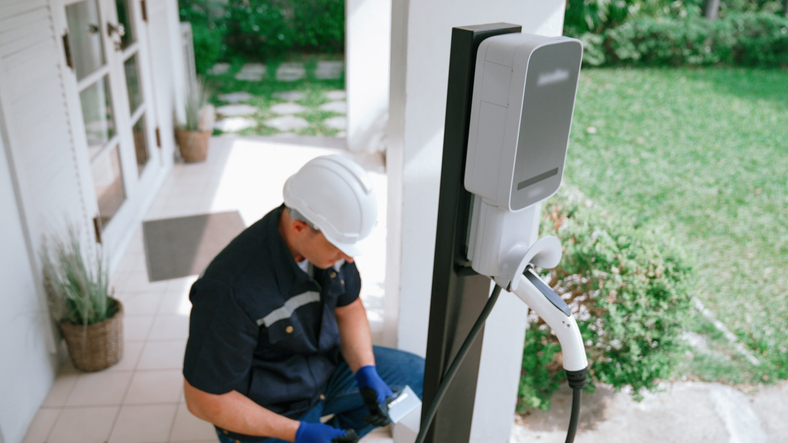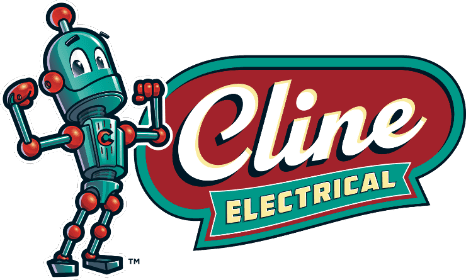Introduction
As electric vehicles (EVs) gain popularity, the demand for EV charging stations has skyrocketed. In the past decade, the automotive industry has seen significant shifts towards electric mobility, and construction has quickly adapted to this changing landscape. New buildings, both residential and commercial, are now being designed with EV charging infrastructure in mind. The integration of EV charging stations is no longer a luxury but a necessity in modern construction projects. With advancements in technology, building codes, and environmental awareness, there are emerging trends that are shaping the future of EV charging station installations. In this article, we will explore the key trends influencing this transformation in the construction industry.
EV Charger Installation Trends in Modern Construction
1. Smart Charging Stations for Future-Proof Installations
In today’s fast-paced world, convenience and speed are key. Smart EV charging stations are rapidly gaining traction as they offer more than just power for vehicles. These stations are designed to integrate with mobile apps, allowing users to track charging sessions, monitor energy consumption, and even schedule charging times based on electricity rate fluctuations. For builders, these systems represent an essential feature in modern homes and commercial spaces. They not only provide seamless user experiences but also contribute to energy efficiency by utilizing renewable energy sources like solar power. By incorporating smart charging stations, construction projects can become more future-ready, accommodating increasing numbers of EVs and minimizing energy waste.
2. Integration with Renewable Energy Systems
As the world embraces sustainable practices, the integration of EV charging stations with renewable energy systems is one of the hottest trends in modern construction. Builders are increasingly incorporating solar panels and battery storage systems alongside EV chargers, creating self-sustaining energy ecosystems for homes and businesses. Solar-powered EV charging stations reduce the dependence on grid electricity and lower long-term energy costs for building owners. With the rising availability of home energy storage systems, EV owners can also store excess energy generated during the day and use it for charging their vehicles at night. This trend is especially important in areas where green building certifications, such as LEED, are highly valued, as it not only promotes sustainability but also increases the overall value of the property.
3. Accessibility and Multi-Unit Installations
As EVs become more mainstream, there is an increasing focus on making charging stations more accessible to a wider audience. Multi-family residential buildings and commercial properties are now focusing on accommodating multiple EV owners. Installing a sufficient number of charging stations in parking garages, carports, and communal spaces ensures that residents and tenants have equal access to charging facilities. Additionally, providing EV charging stations in high-traffic areas such as office buildings, shopping centers, and hotels is becoming essential for attracting environmentally-conscious consumers. The need for easily accessible charging stations has led to the development of smart charging networks that can track usage and even offer the option to share stations among multiple users in a community.
4. Compliance with Evolving Building Codes and Regulations
As the number of EVs on the road continues to rise, governments and municipalities are implementing regulations to ensure that buildings are equipped with adequate EV charging infrastructure. In some regions, local building codes now require the installation of EV-ready circuits and charging stations in new residential and commercial buildings. These regulations also specify the number of charging ports to be installed based on the size of the property. Construction professionals must stay up-to-date on these codes and ensure compliance during the design and planning phases of construction. Failure to adhere to these guidelines can result in costly delays and fines. Moreover, offering EV-ready infrastructure can make properties more attractive to buyers and tenants who prioritize sustainable living.
5. The Rise of Public Charging Stations in Urban Areas
While home and office charging stations are becoming more common, there is also a growing emphasis on public EV charging infrastructure in urban areas. Cities and municipalities are realizing the importance of providing public charging stations to support the widespread adoption of electric vehicles. Developers are increasingly installing EV chargers in urban parking lots, street-side stations, and transit hubs to cater to drivers who rely on public infrastructure. These public charging stations are often paired with fast-charging technology, allowing drivers to top off their EVs during daily activities quickly. The expansion of public charging stations is vital in eliminating range anxiety, a significant barrier to EV adoption. By incorporating these charging stations into new construction projects, developers are contributing to the growth of sustainable cities.
6. Increased Focus on Fast-Charging Technology
As EV adoption continues to rise, there is a growing demand for faster charging solutions. Traditional Level 1 and Level 2 chargers, while effective, take a longer time to charge vehicles, especially in high-demand commercial settings. The development of Level 3 fast chargers is revolutionizing the way EV charging stations are being implemented in modern construction projects. These high-speed chargers are capable of providing up to 80% of a vehicle’s battery capacity in just 30 minutes. This is crucial in locations such as highways, large shopping centers, and business districts where drivers need quick and efficient charging options. Builders who install fast-charging stations ensure that their properties remain competitive in an evolving marketplace.
7. Enhanced User Experience with Charging Networks
The convenience of using EV charging stations is a primary factor in encouraging the adoption of electric vehicles. Many modern EV charging stations are integrated with advanced networks that allow users to locate, reserve, and pay for charging services via mobile apps. These networks also provide real-time data about charger availability and offer incentives such as loyalty programs. Additionally, some charging stations are designed to accommodate a variety of EVs, ensuring compatibility with various charging connectors. Builders who integrate charging network systems into their projects are enhancing the overall user experience, making it easier for EV owners to charge their vehicles wherever they go.
8. Incentives and Financial Benefits for Developers
For developers, investing in EV charging station infrastructure not only makes sense from an environmental and marketability standpoint but can also provide financial incentives. Many governments offer grants, tax credits, and rebates to support the installation of EV chargers. These financial incentives make the initial investment more affordable for developers while contributing to sustainable building practices. In addition, properties with EV chargers often experience higher property values and faster sales due to the growing demand for green technologies. This makes installing EV chargers a wise financial decision that benefits both developers and the environment.
The future of EV charging stations in modern construction is full of opportunities. From integrating renewable energy systems and smart charging stations to complying with building codes and regulations, the trends influencing EV charger installation are shaping the way we build homes and commercial spaces. As the demand for electric vehicles continues to increase, so will the need for innovative and accessible charging solutions. By staying ahead of these trends, builders and developers can ensure that their projects meet the expectations of environmentally-conscious consumers and remain competitive in a rapidly evolving market. EV charging station installation not only benefits the environment but also provides long-term value for your property and your clients.
Conclusion
Power your project with expert EV Charging Station Installation by Cline Electrical Service. Get in touch with our team at 540-380-3886 today for reliable, future-ready solutions that align with modern construction trends and sustainability goals.
📌 Your Local Comfort Experts — Now Serving You as Cline Electrical, Offering the Same Fast and Electrical Services You Know and Trust.
Don’t Miss These Reads







